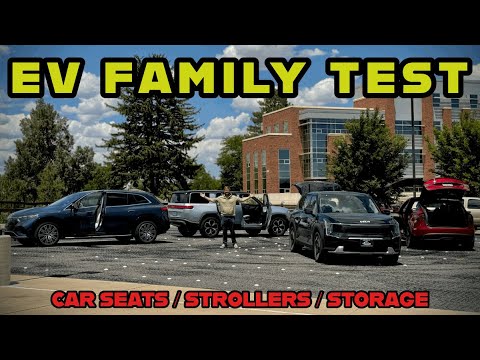Is it possible to convert electric cars into hydrogen-powered vehicles?
Since fuel cells power electric engines, some wonder if EVs can be converted to run on H2 Hydrogen cars, like electric vehicles (EVs) have been fascinatingly controversial in the path to decarbonization, but they are starting to grow in popularity both among automakers and consumers. EVS have clearly taken the lead among early adopters,
Having gone quite mainstream in many regions, such as California. Many wonder if EVs can be converted to run on H2 Since hydrogen cars are starting to pick up rapidly among automakers and slightly among drivers, an increasingly common question is whether EVs could be converted to run on H2
If drivers change their mind regarding how they want to power their rides. Fuel cell vehicles use a fuel cell fed with hydrogen to produce electricity. That electricity powers an electric motor to move the vehicle. Since these vehicles also use electric motors,
It seems natural to wonder if an EV could be converted to receive its electricity from fuel cells instead of – or in addition to – rechargeable batteries that plug in. The answer about hydrogen cars isn’t what many people expect
A fuel cell isn’t unlike a battery in the way it is constructed. H2 enters an anode, where it makes contact with a catalyst that helps to separate hydrogen atoms into a proton and an electron. Those electrons are collected by the conductive current collector connected
With the circuitry of the vehicle, providing the electric motor or onboard battery with power. However, converting typical EVs into hydrogen cars or a hybrid of the two would likely be highly complicated. Indeed, they are both forms of electric vehicles. Moreover, they also both have lithium-ion batteries to power the motor.
That said, EVs have massive batteries compared to those used by hydrogen cars. EVs need them because they are the only source of power, so they are needed if any kind of range is to be achieved. Comparatively, H2-powered vehicles have small batteries as the vast
Majority of the electricity is produced by fuel cells fed by H2 stored in tanks. In theory… Technically speaking, in theory, most of an EV’s battery could be wasted so that the vehicle could be reconfigured to receive power from a fuel cell. However, that would require a substantial amount of reconfiguring to add
The fuel cell as well as the H2 storage tanks and everything to ensure the two are connected. As this type of equipment isn’t readily available for purchase, it means that a purpose designed unit would need to be created to suit the available space and specific needs of the to-be hydrogen cars. Therefore,
Realistically, the answer is “no” based on cost, current technology and availability. Thank you for joining me today! Don’t miss our awesome new ebook. Make sure to hit subscribe and grab it now on the link below. Don’t forget to leave us a comment! Thank you.
Hydrogen cars, like electric vehicles (EVs) have been fascinatingly controversial in the path to decarbonization, but they are starting to grow in popularity both among automakers and consumers. EVS have clearly taken the lead among early adopters, having gone quite mainstream in many regions, such as California – For Full Article: https://www.hydrogenfuelnews.com/hydrogen-cars-ev-conversion/8563838/
➡️Get the inside scoop on hydrogen fuel news with this exclusive free eBook! Discover the latest news and trends in hydrogen technology today – https://www.hydrogenfuelnews.com/hydrogen-fuel-cell-ebook/.
Interesting Hydrogen…
👉Do you like cars? Catch the latest in hydrogen car tech🏎️ https://www.hydrogenfuelnews.com/hydrogen-cars/
Looking for a change? New green job positions listed daily on HFN: https://www.hydrogenfuelnews.com/alternative-energy-jobs/
#hydrogennews #hfn #hydrogenfuelnews


![Are Used Electric Cars Much Worse Than New Ones? [Episode 3] | 4K Are Used Electric Cars Much Worse Than New Ones? [Episode 3] | 4K](https://www.evshift.com/wp-content/uploads/2024/07/1720208164_maxresdefault-770x515.jpg)



